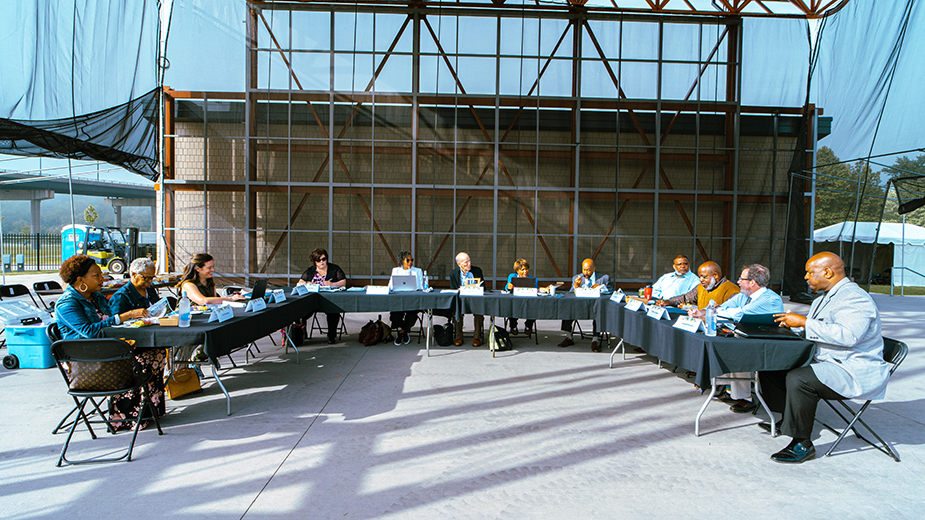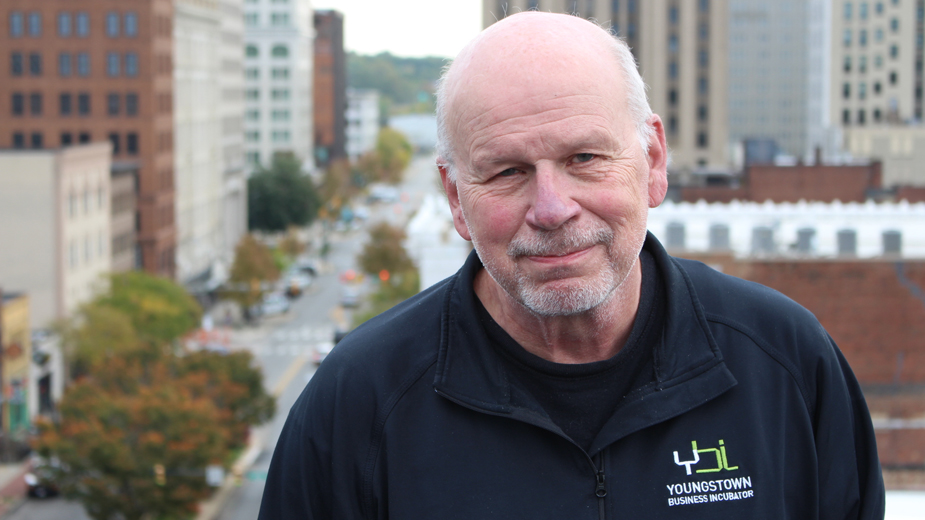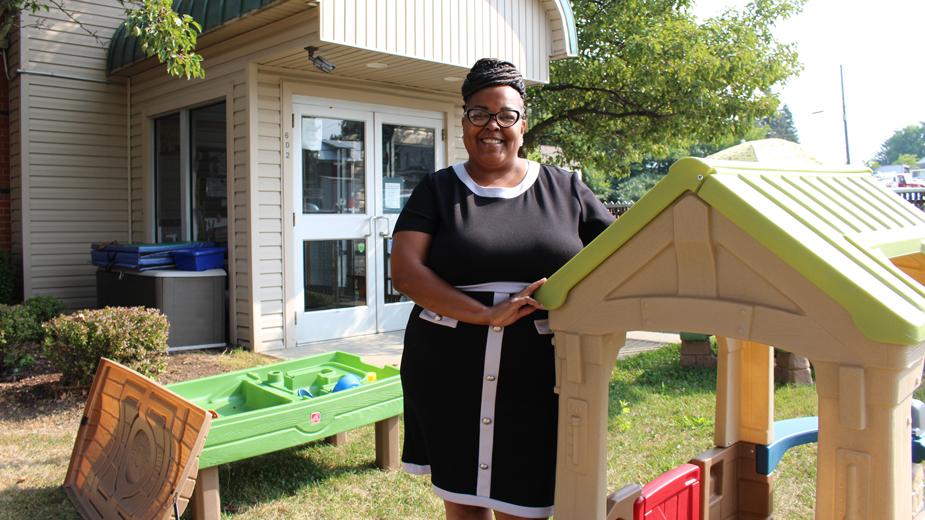When Warning Signs Surface, They Intervene
YOUNGSTOWN, Ohio — Aubryanna and Preston Traenkle are your average 9- and 7-year-old siblings. They enjoy hot dogs, getting their faces painted and immediately are curious why their mother is talking to a reporter.
But they have already endured much more than other kids at their young age.
“My kids have a lot of anxiety,” says their mother, Charlotte Traenkle. “They lost their father three years ago and so they have a lot of anxiety with that. And they have a little trouble making friends at school.”
For three years, Traenkle enrolled her kids in a counseling program, but “I saw no improvement whatsoever with them,” she says. That’s when she learned about the Brave Program offered through their school, Prospect Elementary School in Girard.
Brave, a mental health program that helps kids overcome anxiety, is provided by Youth Intensive Services, Youngstown, which sends counselors to the school. The counselors take the students out of class to talk to them and work through their anxiety as well as any other issues they might be having.
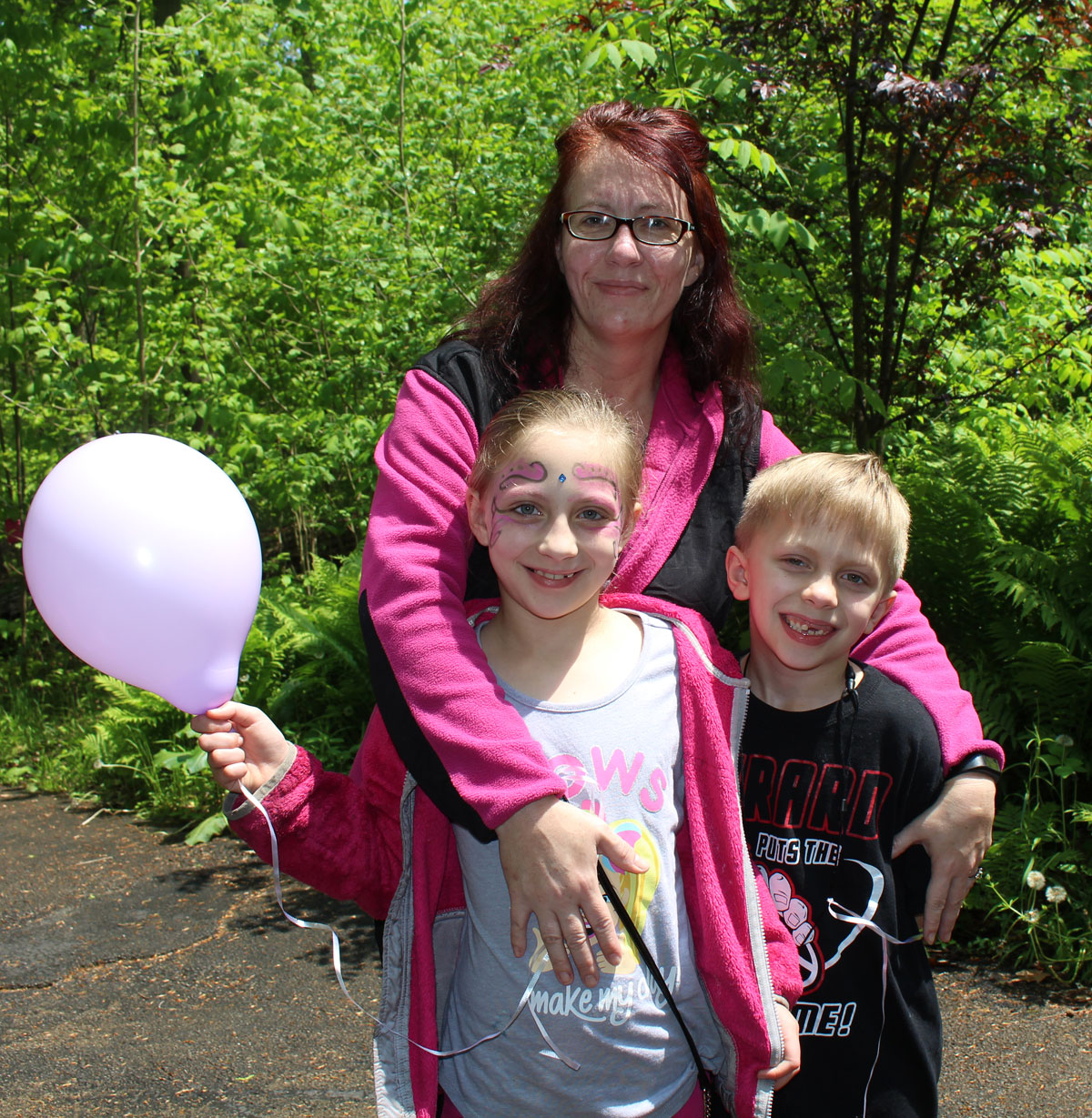
The Traenkle siblings have been in the Brave program since the middle of the school year and Aubryanna has received additional help at Youth Intensive Services for attention-deficit/hyperactivity disorder, Traenkle says.
The experience has “been amazing,” she says.
“We’ve seen a huge improvement with them. It was such a blessing for [the counselors] to actually come to the school. I did not know they did that.”
Of the nearly 700 individuals that Youth Intensive serves, some 80% are children, says its chief operating officer, Desirae Thompson.
Founded in 2009 by Thompson and her husband, Dewayne, the organization provides counseling for mental health and substance abuse, medication management and behavior intervention.
It also offers vocational rehabilitation services for people age 16 and older who may lack social skills or are trying to reintegrate back into society after being incarcerated, Thompson says.
In the last few years, the organization has seen increased need for mental health services, particularly in schools, she continues.
With school shootings frequently in the news, there are “a lot of issues that aren’t being addressed for our children,” she says. “We deal with a lot of depression. A lot of students [with] suicidal ideations, not understanding how to effectively cope with their issues.”
Some of these issues stem from the home setting, she says, with family dynamics playing a key role.
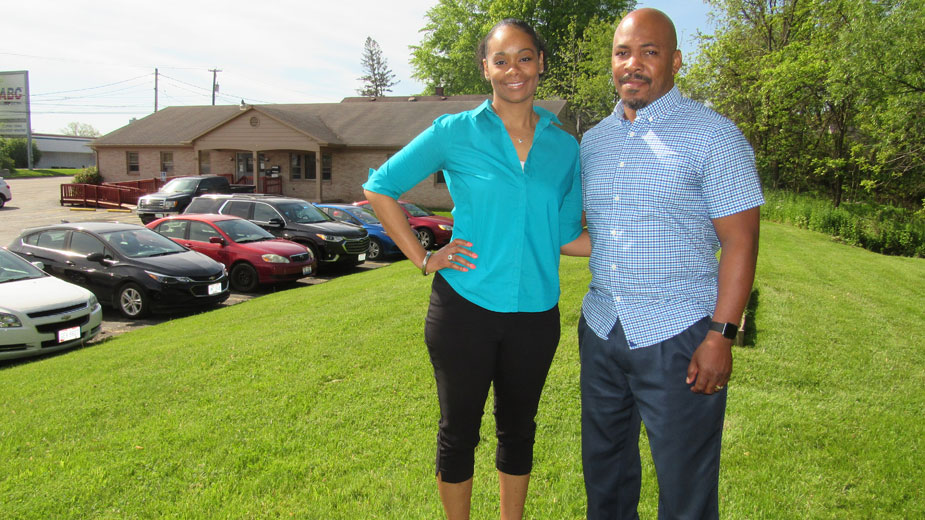
The organization sees many children being raised by grandparents or by parents who aren’t involved in their kids’ lives, as well as children living in poverty. These circumstances are on the rise and are leading to more incidents of depression, she observes.
“A lot of the schools are very concerned,” she says. “They’re constantly reaching out saying, ‘Are there any preventative measures or programming that we can put into place?’ ”
Youth Intensive works with nine school districts in Mahoning and Trumbull counties, counseling students from kindergarten to 12th grade. The nonprofit holds training sessions in schools to educate faculty and staff – including cafeteria workers and bus drivers – on warning signs that a child might be dealing with depression or other mental health issues. In addition, all districts are invited to attend a training that Youth Intensive hosts at the start of each school year.
Although the organization provides behavior intervention, the main thrust of its mission is prevention, says CEO Dewayne Thompson. While intervention seeks to stabilize a child who is exhibiting certain behaviors, prevention addresses warning signs to hopefully alleviate the behavior before it starts, Thompson says.
The catch with prevention is “you never know if it worked,” and organizations like to see actual results, he says. Thus, clients and community members are more likely to buy into intervention “because they see that there’s an obvious problem at that time,” he says.
It’s not difficult to sell the school officials on prevention, however, because they see stories about school shootings and student suicide rates that indicate the scope of the problem. But it’s harder to convince community members of the need for preventive services if those problems aren’t already occurring in their schools.
“If it ain’t broke don’t fix it. That’s the type of mentality community people have until it is broken,” he says.
“Prevention takes a lot of buy-in on the front end. You’re not really seeing the problem, but you know that this type of population or this type of individual could have a problem.”
While there are admirable efforts related to prevention on the part of local government entities, Thompson says private organizations are lacking. “A lot of these organizations see this as competition; who can get the most clients.”
He points to a recent interaction with a woman who wanted to place her granddaughter in the residential services program operated by Youth Intensive, which serves females ages 12 to 18 experiencing serious mental health issues or substance abuse.
After assessing the girl, Youth Intensive found “she didn’t meet the level of care for a residential placement,” Thompson says.
The grandmother said other organizations had been providing case management, therapy and pharmacological services. A conversation with representatives from those service providers, Thompson says, concluded that Youth Intensive would provide one-on-one mentorship pro bono, and “the grandmother is going to get consulted from our doctor.”
A few days later, the grandmother called Youth Intensive saying the other agencies pulled their services when their leaderships learned their agency would be in the picture, Thompson says.
“When you’re not worried about prevention, you’re not worried about this community, but you’re just helping your bottom line, these are the things that happen,” he says.
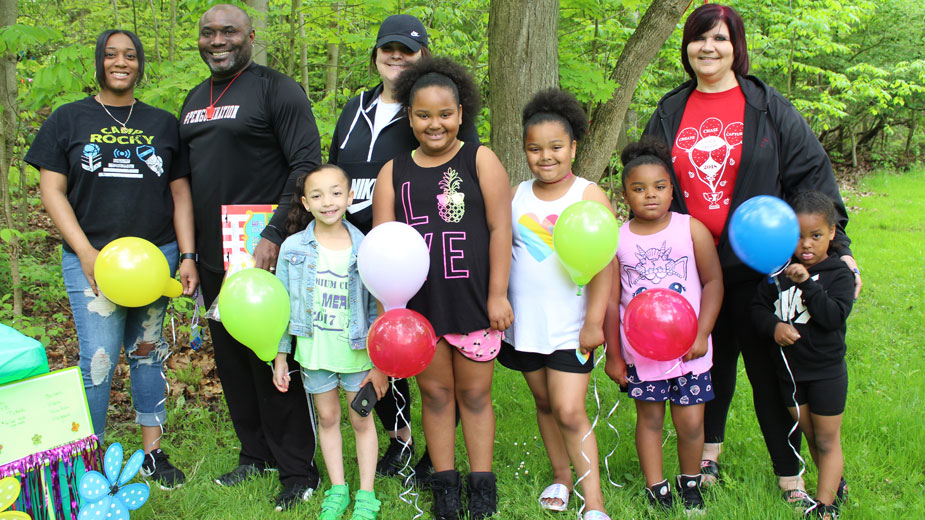
To help raise awareness for the need of prevention and its benefits, Youth Intensive Services hosts events to engage schools and the community, such as a recent celebrity basketball game with members of the Pittsburgh Steelers football team.
The agency supports other area groups, such as the Boys and Girls Clubs and youth league football teams because “a lot of these coaches impact these kids prior to them getting to” that type of behavior, Thompson says.
“We don’t like to put that burden of having a diagnosis on the child,” he says. “If we can use some of our funding to do preventive services, then that’s what we like to do.”
And it seems to be working, Thompson says. One of the schools the agency serves recently reported 60% of the students have increased grades, discipline referrals have dropped 70% and absenteeism is down by half, he says. “That’s phenomenal work,” he says. “That’s the kind of work we want to do and hopefully five to 10 years from now.”
Impact Maker
Corey Strozier, Vocational Rehabilitation Manager

Strozier’s Impact Is Teaching ‘Skills That Pay The Bills’
With more than 20 years of experience under his belt providing direct mental health services to children and adults, Cory Strozier still sees plenty of need in the community.
For the last five years, he’s worked as the vocational rehabilitation program manager at Youth Intensive Services. In that time, he’s witnessed the increasing need for all of the services the Youngstown organization provides, particularly helping people gain and maintain employment, he says.
“That’s why Youth Intensive Services is such a great agency,” he says. “The needs of the community basically can be addressed at one place.”
Strozier has a long professional history working with the owners of the agency, Dewayne and Desirae Thompson, while they were working in western Pennsylvania, he says. When he learned about Youth Intensive Services and the services they were providing to children and adults, he wanted to be a part of it, he says.
“I come from the direct-service field, so I’ve always been in the business of just helping people, providing service, being a mentor,” he says. “That’s what’s in my heart. Being a part of this and helping Youth Intensive as an agency grow and programmatically grow is what I’m all about.”
With the vocational rehabilitation program the agency provides, Strozier helps individuals with mental health and physical disabilities as well as those once incarcerated and are looking to integrate back into society. The goal is to prepare them for real work experiences in “integrated, competitive work environments” rather than a sheltered workshop, he says.
“We want our individuals with disabilities to have the same opportunities for jobs as a typical person would have,” he says.
For that to happen, many need to be trained in soft skills. Youth Intensive Services assigns each client a job coach who helps them every step of the way, Strozier says. The job coach trains them on resume writing, mock interviews, how to dress appropriately for an interview and how to actively seek employment.
Once that person gets a job, the work of the agency is not finished, Strozier says. The job coach is on-site with the individuals ensuring they follow directions from the supervisor and they perform their tasks and responsibilities up to expectations.
That follow-through is essential in ensuring clients reach their 90-day discharges as required by the state of Ohio for the agency to receive funding through Opportunities for Ohioans with Disabilities and the Ohio Department of Developmental Disabilities.
Currently, Youth Intensive Services has a 75% success rate of its clients meeting that requirement, according to Strozier.
“We exhaust all possibilities to try to get our individuals through a successful discharge,” he says. “But sometimes it doesn’t work out. And we take ownership of that.”
In some instances, individuals can’t continue to work, such as the case of one person who became so sick he was bedridden, or another who moved out of the state and was no longer eligible, Strozier says. Other times, things don’t work out with the employer.
“Sometimes they are required to have swing shifts, different shifts, things like that, and scheduling-wise or transportation-wise things just don’t work out for them to maintain that job,” he says.
In other cases, an individual’s past might catch up with him. One of Strozier’s clients was 89 days into the program and working two part-time jobs until he got into some legal trouble and was jailed for six months. Upon his release, the individual reapplied through Youth Intensive Services and went back to one of his former employers, Strozier says. The man held the job for 90 days and remains employed.
“He actually sought us back out,” Strozier says. “That was a really good feeling.”
Even after a successful 90-day discharge, either Strozier or the job coach keeps in touch with the individual and his employer to ensure the individual remains employed and things are going well, he notes.
This summer, the agency will hold its Summer Youth Work Experience program, targeting youth ages 14 to 21 who are transitioning from school to work. The five-week program starts with a week of education called The Skills That Pay The Bills, which teaches students soft skills, networking and other topics, he says.
The next four weeks are work weeks where students are transported to and from Our Community Kitchen, 551 Mahoning Ave., Youngstown. While there, they have jobs and responsibilities, such as preparing bagged lunches to go, serving hot lunches through the food line, and cleaning up the kitchen and dining area after food is served. Students also get a 30-minute lunch break.
“It’s like an actual job. We’re getting them some work experience to help them transition from school to work in just a few short years,” Strozier says.
Youth Intensive Services employs 130 full and part-time workers, including case managers, staff in schools and other mental health specialists, Desirae Thompson says.
“A lot of people come here for internships to get a good feel of what they would like to work with,” she says. “So we help them get to where they need to be.”
For revenue, the agency receives per diem rates through contracts it holds for its residential services. Other mental health services are billed through a client’s insurance. The agency seeks grants when needed, such as the 21st Century Community Learning Center grant, for which it partners with some area school districts.
The agency won’t turn someone away because of a lack of insurance, she notes. “We do a lot of pro bono, because a lot of students that have private insurance find that it doesn’t cover mental health services,” she says.
As need increases, so do the agency’s expenses, Dewayne Thompson says.
Annual operating costs are about $2 million and are going up, he says. By comparison, they agency’s revenue in 2009 was $70,000. Payroll makes up a large part of the agency’s expenses, which is typical for this type of nonprofit, Thompson says. He expects operating expenses to increase as the agency expands its services, particularly with its substance abuse program, he says.
“We do have quality people that care,” he says. “Our philosophy is to give back as much to the workers and to the people that we’re working with, and you’ll have a successful product.”
CLICK HERE to watch Desirae Thompson’s 3 Minutes With interview.
CLICK HERE to watch Dewayne Thompson’s 3 Minutes With interview.
How You Can Help
Community members can make a positive impact on Youth Intensive Services by volunteering their time or donating services.
The Youngstown agency is “always looking for ways to improve our programming,” says co-owner and chief operating officer Desirae Thompson. Summer programs provide transportation and meals to the children, and the agency welcomes any help with those services, she says.
Youth Intensive Services hosts three family events annually for the community to raise awareness about the need for its services. The agency welcomes volunteers to help with these events and others, as well as to provide mentorship for youth and adults, particularly parents of at-risk children, she says.
“A lot of people tend to relate to someone who’s been through the things they’ve gone through, or can relate,” Thompson says. “I would like to start parenting groups for support for various things.”
Those interested in volunteering or making a referral can contact Youth Intensive Services at 330 318 3436 or online at YouthIntensiveServices.com.
Copyright 2024 The Business Journal, Youngstown, Ohio.
